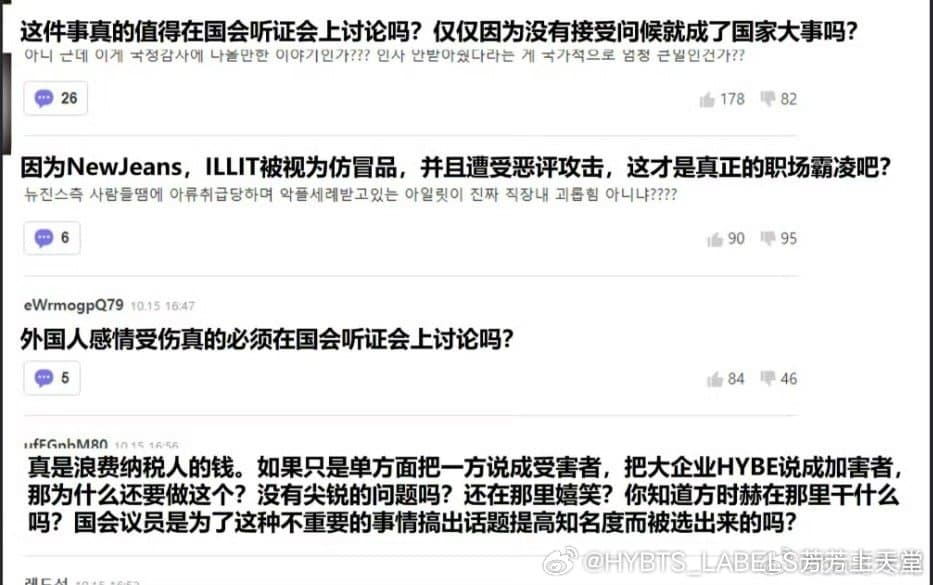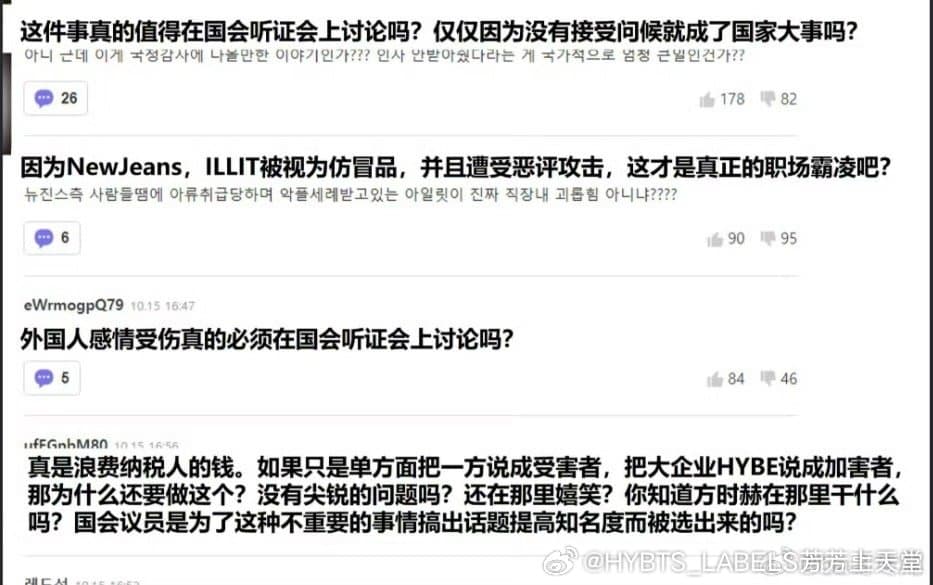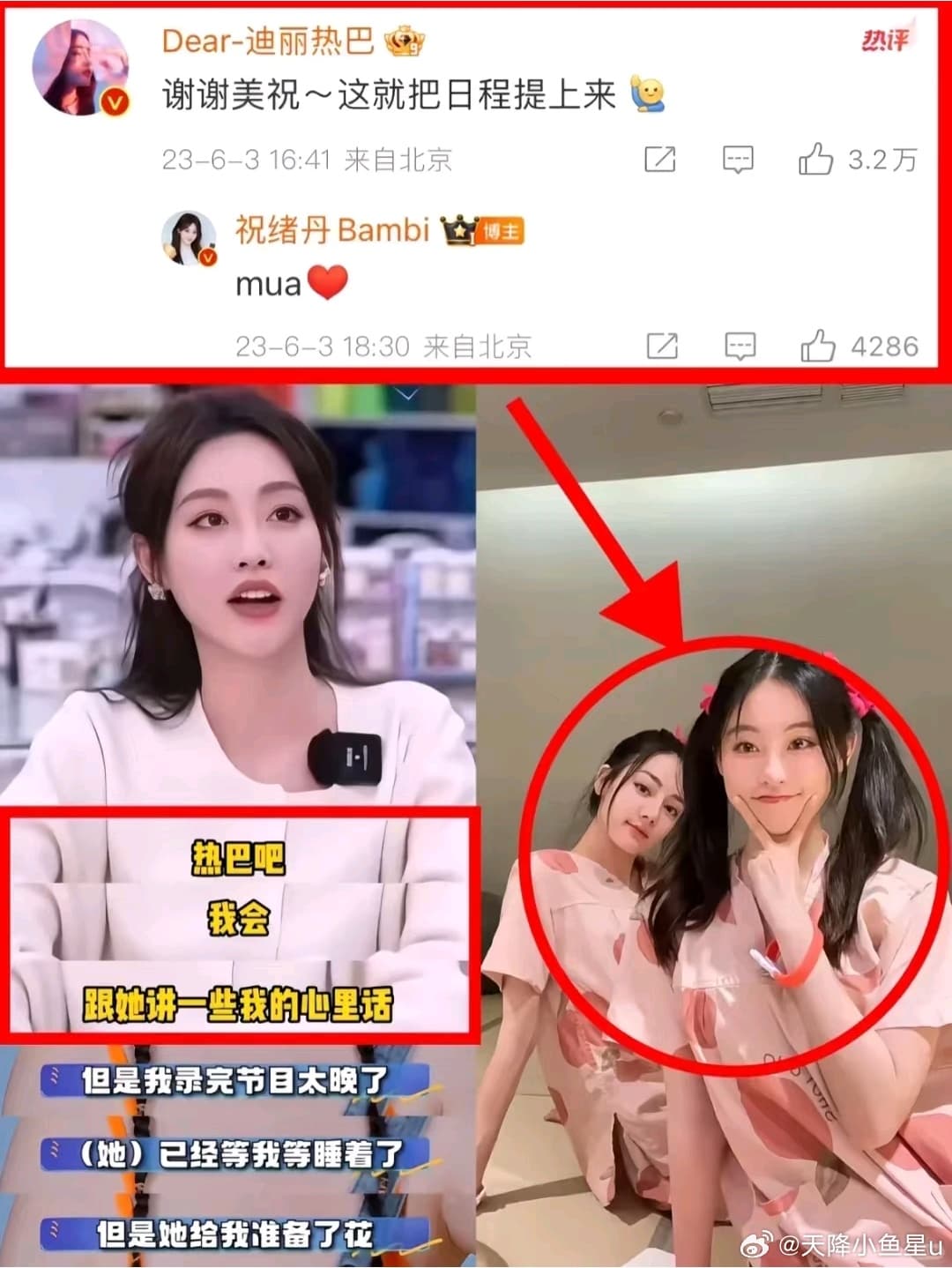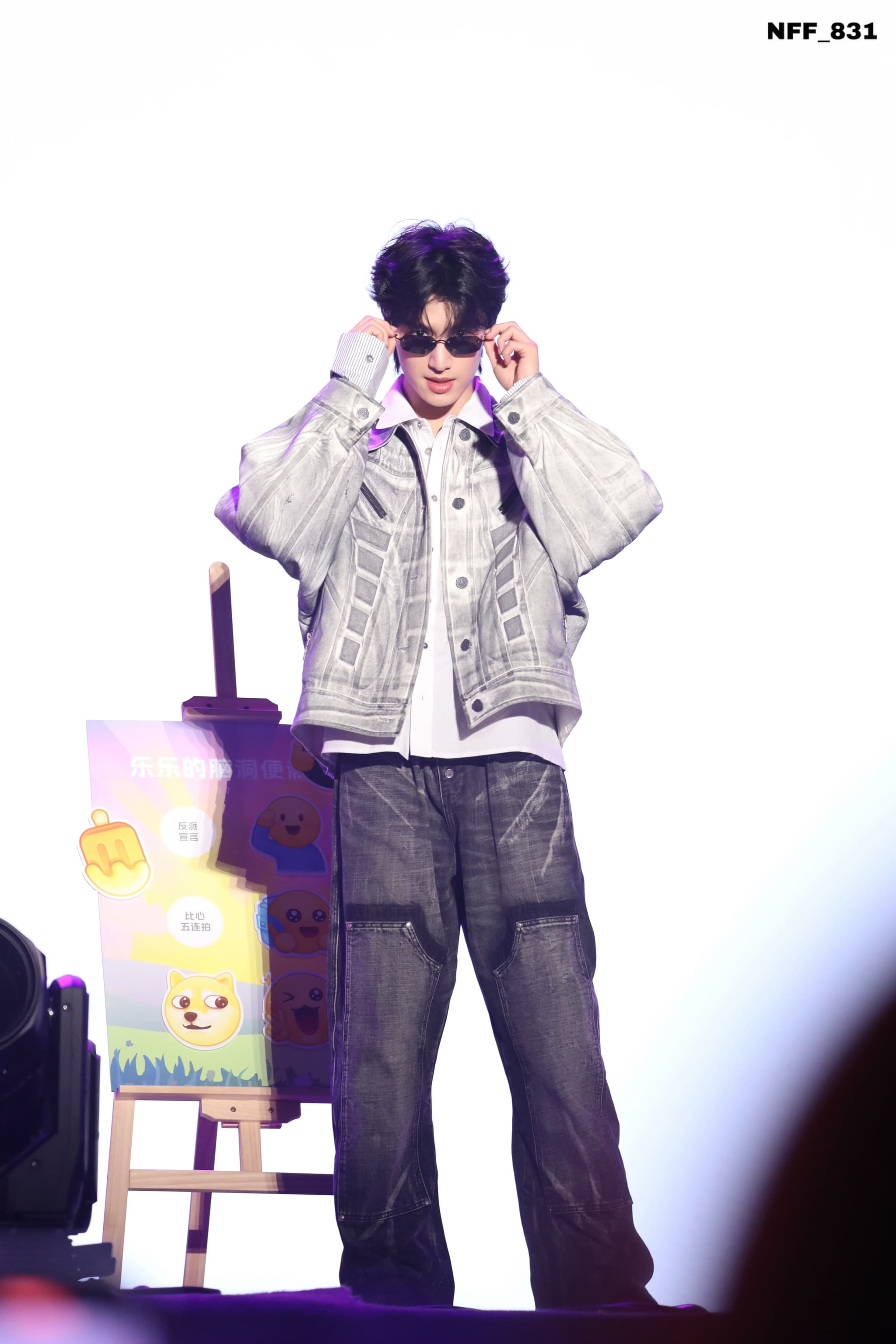Hanni-gate: When Satire Crosses a Line
A recent skit on a Korean entertainment show, in which a comedian dressed up as NewJeans' member Hanni and "attended" a parliamentary hearing, has sparked widespread outrage and ridicule online. The incident has been viewed millions of times on social media platforms, with many fans of the K-pop group expressing their indignation at the perceived mockery of Hanni's serious testimony about workplace bullying.

20 October 2024
However, beyond the superficial humor and irony of the skit lies a complex web of issues that warrant closer examination. The fact that the comedian's parody was seen as funny by many highlights the persistent trivialization of serious social problems, such as workplace bullying and harassment, in Korean society.
Furthermore, the timing of the skit has also been criticized, as it coincided with the postponement of a parliamentary hearing into the case of 18 Chinese nationals who were killed in a tragic incident. The juxtaposition of these two events has been seen by some as a stark reminder of the nation's priorities and its penchant for distractions.
Others have pointed out that the incident reflects a broader cultural problem, where the line between humor and ridicule is often blurred, and the dignity and agency of individuals, particularly women and minorities, are frequently compromised for the sake of entertainment.
The backlash against the skit has also underscored the complexities of fandom and fan culture in Korea, with some defenders of the comedian arguing that the parody was meant in good fun, while others have accused them of being tone-deaf and insensitive to the very real issues that Hanni and other victims of workplace bullying face.
Ultimately, the Hanni parliament parody incident serves as a Rorschach test for Korean society, revealing the deep-seated attitudes and biases that underlie the country's humor, entertainment, and social interactions. As such, it demands a more nuanced and thoughtful response than mere outrage or ridicule.
The controversy surrounding Hanni's mock attendance at the National Assembly has sparked a heated debate about the boundaries of satire and the role of government in policing cultural expression. While some argue that the incident is nothing more than a harmless prank, others see it as a reflection of a deeper issue – the erosion of decorum and respect in public discourse.
As the world watches, the handling of this incident by South Korean lawmakers has raised questions about the country's reputation for civility and tolerance. By devoting parliamentary time to discussing a joke, some critics argue that the National Assembly is sending the wrong signal about its priorities and values.
Moreover, the fact that this incident has gained international attention highlights the increasing blurring of lines between domestic politics and global geopolitics. In an era where social media can amplify even the most seemingly trivial incident into a global phenomenon, governments must be mindful of the impressions they create.
In this case, the spectacle of lawmakers solemnly deliberating on a joke has left some foreign observers bewildered, reinforcing stereotypes about the perceived triviality of Korean politics. As one commentator noted, "Is this really the kind of issue that warrants national attention? Does the fact that someone was ignored during greetings merit a parliamentary investigation?"
The mock attendance incident has also raised questions about the exercise of power and accountability in the National Assembly. By focusing on a perceived slight against a K-pop idol, some lawmakers risk being seen as more interested in grandstanding than in tackling the pressing issues facing the nation. As one critic put it, "This is a waste of taxpayer money. If they're going to make a fuss about something, shouldn't it be about something that really matters?"
The recent controversy surrounding NewJeans' member Hanni's "snub" at a Korean entertainment program has sparked heated debate about the limits of workplace etiquette and the severity of consequences for perceived slights. However, some netizens have pointed out that the true victims of workplace bullying are not those who are "snubbed" by their colleagues, but rather those who face systemic and pervasive harassment.
ILLIT, a K-pop group often compared to NewJeans, has faced intense online backlash and criticism, with some labeling them as "copycats." This kind of vitriolic response has led to accusations of bullying and harassment, highlighting the darker side of the K-pop industry.
Critics argue that the focus on Hanni's perceived "snub" diverts attention away from more serious issues of workplace bullying and harassment. They contend that the K-pop industry's cutthroat culture and competitive nature can foster an environment of fear and intimidation, where idols are reluctant to speak out against mistreatment.
Moreover, the fact that this incident has been elevated to the level of a national discussion has raised eyebrows among some observers. They question whether the issue of workplace etiquette is truly worthy of national attention, especially when compared to more pressing concerns such as systemic inequality and labor rights.
As one netizen wryly observed, "If we're going to have a national discussion about workplace bullying, let's focus on the real victims – those who face genuine harassment and intimidation, not just those who get 'snubbed' by their colleagues."
The Korean entertainment industry has long been no stranger to controversy, but the latest incident involving a variety show's decision to impersonate NewJeans' member Hanni has sparked fresh debate about the ethics of these programs. The show in question, known for its over-the-top humor and parody segments, has been accused of crossing a line by mocking a public figure and perpetuating negative stereotypes.
Critics argue that such programming not only hurts the individuals being impersonated but also contributes to a culture of ridicule and disrespect. "This kind of show may be popular, but it's really lowering the bar for what's considered acceptable," said one netizen in response to the clip. "Don't they worry about being boycotted?"
The controversy has also sparked a heated debate among fans, with some defending the show as harmless entertainment and others condemning it as insensitive and mean-spirited. "As a fan of NewJeans, I'm appalled by this behavior," wrote one fan on social media. "It's not just about Hanni - it's about the culture of bullying and harassment that this kind of show perpetuates."
Meanwhile, others have pointed out that the incident has overshadowed more serious issues, including the case of 18 Chinese nationals who were victims of a heinous crime and whose trial was recently postponed due to a scheduling conflict.
As the debate rages on, one thing is clear: the line between entertainment and offense is increasingly blurred in the world of Korean variety shows, and it's up to audiences and creators alike to define what's acceptable and what's not.
Comments

Share this article
Related Articles

Ruby Lin Says She and Wallace Huo Are Still “Adjusting” After Seven Years, Igniting Viral Debate on Celebrity Marriages
By Trending on Weibo
Entertainment
15 Sept 2025

“Too Much Qi”: A Light‑hearted Joke on ‘Sisters Who Make Waves’ Sparks Celebrity Smear Campaign, Wellness Debate and Online Meme Frenzy in China
By Trending on Weibo
Entertainment
15 Sept 2025
Li Ronghao’s Tour Surge, New Video Release, and NFC Album Glitch Spotlight Quality‑Control Challenges in China’s Pop Scene
By Trending on Weibo
Entertainment
13 Sept 2025
Mu Zhicheng Emerges as TF Entertainment’s Hottest Trainee Amid Viral Social‑Media Surge and Anticipated Debut
By Trending on Weibo
Entertainment
13 Sept 2025

China’s Emerging Acting Sensation Zhang Kangle Poised for High‑Profile Film, Fashion, and Digital Stardom
By Trending on Weibo
Entertainment
13 Sept 2025

